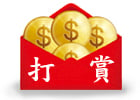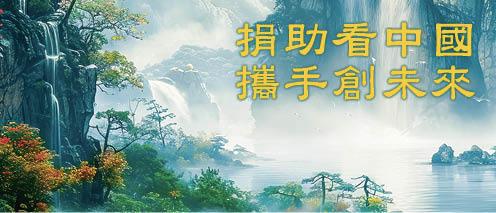洛杉矶时报记者亨力-朱10月1日报导说,当很多人认为你没有领袖气质时,你是很难制造个人崇拜的。
这是中国第一号人物,江泽民主席,应该学到的艰难的教训。尽管他的助手们发动的媒体攻势会使很多美国政治家们感到羞耻。
他亲吻婴儿,在国宴上卖唱,雇用民意测验公司调查他做的如何。他将他的照片粉刷在广告牌和书的封面上。仿效他的偶像般的前两任,毛泽东和邓小平,他在相机前游泳以显示他的活力。
但是对许多中国人来说,76岁的江,仍然是个毫无色彩的人物。
北京的一个老党员轻蔑地说:“江泽民像个老太婆。”
书呆子长相、戴副眼镜的江竭尽全力想将自己上升到和中华人民共和国的开国元首毛以及把江从不知何处提拔出来当他的后任的邓前辈似的中国传奇人物。
可是尽管掌握着中国所有的重要头衔,主席、党书记和军委主席,江还是远远不及他的前两任人物有权威。作为共产革命的英雄,那两位以绝对的权威进行统治。
这些天,随着中国第十六届党代表大会,一个五年召开一次的关键性的政治会议,即将于11月8日召开,江的领导地位正处在显微镜之下。所有的目光都聚集在中国的主席是否将如众所愿下台还是抓住他的权力不放。
不管他有什么企图,毫无疑问地,江和他的支持者们多年来一直试图通过富于进攻性的公关运动擦亮他的形象,其中包括频繁地与世界各国的首脑们会面进而在相机下曝光,例如,这个月即将在美国总统布什的德州庄园里,他无疑会再这么做。
江对他公共形象的关心,有些人称为痴狂,不是简单地虚荣心所致,尽管那些见过他的人说他似乎充满虚荣。据分析家们说,这还是一种政治手腕,这是他在过去的十年内为巩固他的地位和保证他在11月份下台之后仍具影响力做出的广泛努力的一部份。
*新的怀疑
江没有毛或邓那样的门第。同时,20年速度快到危险的社会和经济的变化产生了一群受到较好教育、前所未有地机巧并敢于怀疑的中国人群,他们对外界的影响和信息是开放的。这群人中的一部份对不是经选举产生的领导人毫无奉承之意。
于是,江采用猛烈的媒体攻势,试图树立他为公众眼中的一个合法的权力继承人。
观察家们说,江在树立他的形象方面投入的时间和精力比其他的中国领导人都多。他甚至在1997年秘密地雇用一家公关公司去调查人们对他在主持香港回归中的表现看法如何。
北京一家独立民意测验公司曾经调查过民众对政府的看法。这家公司的创建者威克特-袁(音)说,“我想这是个新情况。在美国,政治家们至少在表面上会说他们会尽力让公众满意。在(中国)这儿,人民没有选举权,他们仍旧[只能]听从他们的领导者。但是,那些领导者开始想一想公众的意见了。”
此种观点对一个逃脱对公众的责任的体制的影响仍是极其有限的。在中国,权力的转换仍然是在共产党的幕后交易、严格的政治控制和其他非民主的手段下进行的。
但是现在的政权一直将它合法性的赌注下在有能力将繁荣代给它13亿民众,和将中国推向世界舞台。民众的观点已不可能被抹杀了,即使并不是开启权力的直接钥匙。
当年毛或邓统治的时候,无论他的政策的结果如何,他都是毫无疑问的领袖。但是这种日子已经过去了。
毛被尊称为“伟大的舵手”,尽管他犯下了灾难性的错误,例如,50年代的合作化运动“大跃进”期间多达3千万人民死于饥荒,还有混乱的1966-76的“文化大革命”。
邓在1989年天安门大屠杀期间和之后也仍然是“最高领袖”。尽管在他临死前,除了是一个慈善机构和中国桥牌协会的荣誉主席外,他没有正式头衔。
而江是个小心的技术官僚,并不是个令人兴奋的革命家或有远见的人。他的政治资本来自于一个上海大学和一家苏联汽车厂,而并不是传奇式的30年代的长征,这个具有决定性意义的事件产生了中华人民共和国早期的领导人。
自从邓在天安门屠杀事件后立即将他点名为党主席后,他只好用狡猾的政治手腕去击败他的竞争对手。
他的助手们努力地将江塑造成一个跟随时代的现代派,一个进步思想家,将共产主义扩大到不仅包括工人和农民,而且包括中国新的精英们:很小但逐渐具有影响力的中产阶级,专业人士,知识分子和企业家们。
江的命名尴尬、某种程度上令人糊涂的政治哲学---“三个代表”,被广泛认为是一种邀请这些逐渐增长的精英们加入共产党的企图。
一个曾经向政府作过咨询并不愿透露身份的公关顾问说,“他想取悦所有的人。”
江的一些试图巩固继承权力的资格的做法是令人难堪的笨。几年前,一家报纸刊登了当年毛和邓阅读人民日报-共产党的喉舌-的照片。第三张是江装腔作式地模仿他们的照片。
他对他形象的重视甚至决定了他的着服。在1999年中国庆祝共产党统治50周年的北京市区大游行中,江是高高的看台上唯一的一个穿着毛式衣服的领导者。其他的官员都穿着西式服装。当扯着毛、邓和江的巨幅相片的游行队伍经过时,他们面色严峻地鼓着掌。
也许多于任何其他的义务,江还试图享受成为世界政治家的滋味,并极力地在这方面表现。被数以亿计的观众观看的国家晚间新闻节目中,几乎每晚都播放有关江周游各国或者是在北京接受来自一些小的、贫穷的、大部份中国人从来都没听说过的国家的晋见的录像。
摄像机还跟踪他精心布置好的在群众中走动的场景。他会拍拍他们的身体,将婴儿放在他的膝盖上玩耍,以表示他是位像平凡的周[恩来]一样大善人的领导。
但结果并不总是鼓舞人心。
*嘲笑和冷淡
许多中国人认为江看起来可笑并且象个骗子,他遇到高职位的外国人士时他的英语会脱口而出,或者是放纵他的自认为很有魅力的嗜好,就是献媚式地给他们唱几个中国歌剧的片段。
别人甚至不屑于耻笑的“三个代表”被江在党代会上极力地游说写入共产党的章程中。这将会保证他对中国未来的影响会持续。
对年轻人的一个调查中发现只有百分之十一的人能够列出“三个代表”中的其中的一个代表。讽刺者们说这“三个代表”应该在党章中以“江泽民意见”为标题下和“毛泽东思想”、“邓小平理论”一样被供起来。
波士顿大学的中国政治问题专家约瑟夫-菲尔史密斯(Joseph Fewsmith) 说:“我不认为江是个特别受欢迎的领导者。我认为公众和领导阶层存在实质的鸿沟:公众更关心如何谋生;而领导阶层仍旧认为党制和思想控制很重要。”
但是,江缺乏毛的魅力。而且尽管他忙碌的助手们的最佳努力,许多人还是不将他视为像邓一样具有开拓性。江只是沿用了邓提出的市场经济改革。
“除非他一直确定他的下一个举动,他基本上没有动。这使他的执政显得非常平庸,因为他并没有有力或有远见的领导。”菲尔史密斯说:“但这帮助他保持权力。”
===================================
原文:
China's Leader Campaigning for Cult Status
Politics: The president wants people to say 'Jiang' with the same reverence as 'Mao' and 'Deng.' The trouble is, he's just not exciting.
By HENRY CHU , LA TIMES STAFF WRITER
BEIJING -- It's hard to create a cult of personality when so many people think you don't have one.
That's the tough lesson China's No. 1 leader, President Jiang Zemin, has learned, despite a media offensive by his handlers that would put many U.S. politicians to shame.
He kisses babies, sings at state banquets and hires pollsters to tell him how he's doing. His face is plastered on billboards and book covers. Like his two iconic predecessors, Mao Tse-tung and Deng Xiaoping, he goes swimming for the cameras to demonstrate his vigor.
But to many Chinese, Jiang, 76, still cuts a colorless figure.
"Jiang Zemin is like an old lady," one veteran Communist Party member in Beijing said disdainfully.
By all accounts, the bespectacled, bookish-looking Jiang is desperate to be elevated into the Chinese pantheon alongside Mao, the founder of the People's Republic, and Deng, the mentor who plucked Jiang almost out of nowhere to be his successor.
Yet despite holding all the most important titles in China─president, party secretary and head of the military─Jiang is far less powerful than the two men before him, who ruled with absolute authority based on their status as heroes of the Communist revolution.
These days, Jiang's leadership is under the microscope as China gears up for its 16th Communist Party Congress, a crucial political gathering held every five years and due to begin Nov. 8. All eyes are fixed on the Chinese president to see whether he will step down from his post of party chief, as widely expected, or hang on to power.
Whatever his intentions, there is no question that Jiang and his supporters have been trying for years to burnish his image through an aggressive public-relations campaign, including frequent photo ops with world leaders such as the one he will no doubt participate in with President Bush at the American leader's Texas ranch this month.
Jiang's concern─some call it an obsession─about his public persona is not simply a function of vanity, although those who have met him say there seems no shortage of that. It is also, analysts say, a political ploy, part of a wider effort over the last decade to strengthen his position and ensure that his influence endures even if he steps down in November.
New Skepticism in Air
Jiang doesn't boast the pedigree of Mao or Deng. At the same time, 20 years of breakneck social and economic change have given rise to a better-educated, more sophisticated and more skeptical Chinese populace than ever before, open to outside influences and information─some of it highly unflattering to its unelected leaders.
Hence Jiang's unrelenting media blitz, which aims to establish him firmly in the public's eyes as the rightful heir to the throne.
Jiang, observers say, has spent more time and effort cultivating his image than other Chinese leaders, going so far as to discreetly hire a PR firm back in 1997 to find out how people rated his performance in presiding over Hong Kong's return to Beijing's control.
"I think it's a new situation," said Victor Yuan, the founder of an independent polling firm in Beijing that has researched popular attitudes about government. "In the U.S., politicians, at least on the face of it, say they try to please the public. Here, people are not voters; they still [can only] listen to their leaders. But those leaders are starting to think about public opinion."
Such opinion still has extremely limited impact on a system that eschews public accountability. Power in China continues to flow mainly from back-room deals, tight political control and other undemocratic practices by the Communist Party.
But the current regime has staked its legitimacy on its ability to deliver prosperity to the nation's 1.3 billion people and to turn China into a major player on the world stage. Popular opinion can no longer be written off, even if it's not yet the direct key to power.
Gone are the days when Mao or Deng could remain the unquestioned ruler of China whatever the results of his policies.
Mao was revered as the Great Helmsman despite disastrous mistakes such as the Great Leap Forward of the 1950s─a collectivization program in which a staggering 30 million people died of starvation─and the anarchic 1966-76 Cultural Revolution.
Deng, too, remained "paramount leader" through and after the 1989 Tiananmen Square massacre, although he held no formal titles by the time of his death except honorary president of a charity and of China's Bridge Assn.
Jiang is a cautious technocrat, not an inspirational revolutionary or visionary. His political credentials come from a Shanghai university and a Soviet car factory, not the legendary Long March of the 1930s, the crucible that yielded the early leaders of the People's Republic.
He has had to rely instead on astute political maneuvering to knock off his rivals ever since Deng anointed him party chief right after the Tiananmen Square massacre.
His handlers have striven to portray Jiang as a modernizer in tune with the times, a progressive thinker who wants to broaden the Communist Party to include not just its traditional base of peasants and workers but China's new elites: its small but increasingly influential middle class, its professionals and intellectuals, and its entrepreneurs.
Jiang's awkwardly named and somewhat confusing political philosophy, the "Three Represents," is widely seen as an attempt to co-opt these growing elites by inviting them to join the party.
"He tries to please everybody," said one public-relations consultant who has advised the government and asked not to be identified. Some of Jiang's attempts to drive home his right of succession have been embarrassingly ham-handed. One newspaper article a few years ago featured photos of Mao and Deng reading the People's Daily, the party mouthpiece. A third picture showed Jiang mimicking them almost down to the pose.
His emphasis on image even dictates his choice of clothes. When the country celebrated 50 years of Communist rule in 1999 with a massive parade through downtown Beijing, Jiang was the only one of China's leaders up on the viewing platform wearing a Mao suit. The others wore Western dress and clapped stonily as marchers went by hoisting huge pictures of Mao, Deng and Jiang.
Perhaps more than any other of his duties, Jiang relishes his role as a world statesman─and plays it up as much as possible. The national evening newscast, seen by hundreds of millions of viewers, airs almost nightly footage of Jiang trotting the globe or receiving tribute in Beijing from small, poor countries that most Chinese have never heard of.
The cameras also track him on highly staged walkabouts among ordinary Chinese, whose flesh he presses and infants he dandles on his knee to show himself a beneficent leader in touch with the average Zhou.
But the results aren't always encouraging.
Ridicule and Apathy
Many Chinese think Jiang looks ridiculous and sycophantic bursting into English for foreign dignitaries or indulging his habit, which he apparently thinks charming, of serenading them with snatches of Chinese opera.
Others find it hard to care even enough to poke fun at the "Three Represents," which he is lobbying hard to have written into the Communist Party charter at the party congress. This would guarantee that his influence on China's direction would continue.
A survey of young people found that only 11% could name even one of the "represents." Scoffers say the philosophy should be enshrined in the party charter, alongside "Mao Tse-tung Thought" and "Deng Xiaoping Theory," under the heading "Jiang Zemin's Opinions."
"I don't see Jiang as a particularly popular leader," said Joseph Fewsmith, an expert on Chinese politics at Boston University. "I think there is a real disconnect between the public, which is more interested in making a living, and the leadership, where party mechanisms and control over ideology remain important."
But Jiang lacks the charisma of Mao. And despite the best efforts of his spin doctors, many still do not see him as path-breaking like Deng, who instituted the market-oriented reforms he continued.
"Unless he has been sure of his next move, he has generally not moved. This has given his administration a lackluster character because he is not associated with forceful or visionary leadership," Fewsmith said. "But it has helped him stay in power."
===================================
(大纪元)(文章仅代表作者个人立场和观点)
短网址: 版权所有,任何形式转载需本站授权许可。 严禁建立镜像网站.
【诚征荣誉会员】溪流能够汇成大海,小善可以成就大爱。我们向全球华人诚意征集万名荣誉会员:每位荣誉会员每年只需支付一份订阅费用,成为《看中国》网站的荣誉会员,就可以助力我们突破审查与封锁,向至少10000位中国大陆同胞奉上独立真实的关键资讯,在危难时刻向他们发出预警,救他们于大瘟疫与其它社会危难之中。









